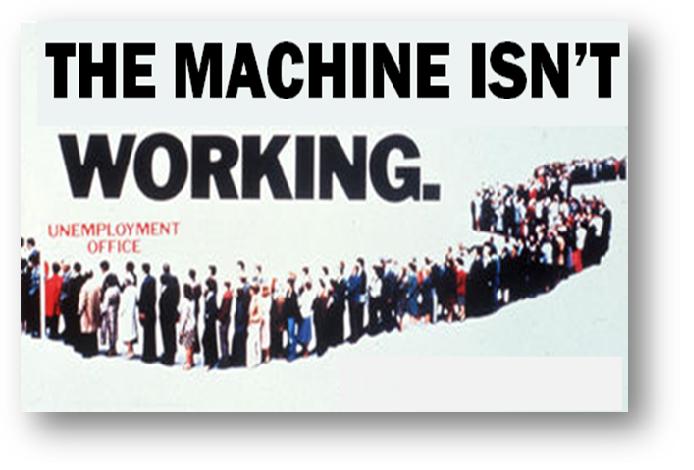filling me full.
double use of "full" does this imply perhaps it is filling him up too much?
filling me full.
double use of "full" does this imply perhaps it is filling him up too much?
sounds start to transform into his other senses, smell & touch
I hear bravuras of birds, bustle of growing wheat, gossip of flames,clack of sticks cooking my meals,
would Whitman feel the same about these sounds after hearing them for years and years in a row constantly? is the love for these sounds temporary?
Ifwesubtracthumanperception,everythingmoves.
the human brain cannot account for many movements, we do no constantly sense the earth is spinning, and cannot sense atoms moving either
Thathummingbackgroundsoundis ancient—the ringingofahugebell.Explodingintoamassofintenselyhotmatter,pulsingoutvastsoundwaves,
the big bang is a noise that constantly surrounded us, but one we cannot hear
isthesoundscapeoftheworldanmeter^atecompositionoverwhichwehavenocontrol,orareitscomposers
i would say it is both, we contribute noises to the world in a way that it is a composition, but in other ways it is entirely random and forever changing unpredictably
Noisesarethesounds wehavelearnedtoignore.
this helped clarify what these authors meant by noises
Modernmanisbeginningtoinhabitaworldwithanacousticenvironmentradicallydifferentfromanyhehashithertokn
is this because of technology?
tberhythmiccryoftheslave—standsto-daynotsimplyasthesoleAmericanmusic,butasthemostb
sound studies before sound studies as we know of it today
Itcanbeginfromobvliuslysonicphenomenalikdspeech, hearing,soundtechnologies,architecture,art,ormusic.
we underestimate the power of sound as it can assist us learning in all of these different parts of human life
naway,wehaveno choice: the academicstudyofsoundneedstobeginsomewhereanditbelongsinmanyhomesinmanydisciplines,solongasitalsoreachesacrossthem.
Sterne admits the academic study of sound is not an easy one, but it needs to start somewhere
As the number of links increased, comprehension declined, as measured by writing a summary and completing a multiple-choice test. Si
I think this is why Wikipedia is so popular, all the general information in one link
Hyper reading, which includes skimming, scanning, fragmenting, and juxtaposing texts, is a strategic response to an information-intensive environment, aiming to conserve attention by quickly identifying relevant information, so that only relatively few portions of a given text are actually read.
I did not even know my brain took in so much when I skimmed, but according to her this is an actual brain function
widespread,^ constitute nothing less than a change in worldview.Moreover, research indicates that the small habitual actions associated with web interactions—clicking the mouse, moving a cursor, etc.—may be extraordinarily effective in retraining (or more accurately, repurposing) our neural circuitry, so that the changes are not only psychological but physical as well
I never figured that the physical nature of using a computer actually benefits memory in anyway at all. This is her first point I find distinctly different from others
Couldn't it be argued that "web searches" are the same library except more accessible with a wider selection?
'hd if you still think God made us," writes Greenberg, "there's a neurochemical reason for that too." He quotes writer David Linden, author of The Acddental Mind: How Brain Evolution Has Given Jls Love, Memory, Dreams, and God· "Our brains have be-come particularly adapted to creating coherent, gap-free stories .... This propensity for narrative creation is part of what predisposes humans to religious thought."
isn't science "filling in the gap" searching to make sense of our existence as well? A bit bias I would say.
You Are What You Click More than twenty years ago I published a book called The Gutenberg Elegies: The Fate of Reading in an Electronic Age. It was my speculative-but also, I admit, somewhat alarmed-response to what felt like the rash ascendancy of all things digital.
His essay became outdated so quickly as even he did not realize how fast technology could and would advance
Daily news-papers, with their long columns of print, struggle against declining sales. Fewer and fewer people under the age of fifty read them; comput-ers will soon make packaged information a custom product. But if the printed sheet is heading for obsolescence, people are tuning in to the signals. The screen is where the information and entertainment wars will be fought.
I do really see his point, and the new generation when we become teachers, the internet will seem to be the more used resource in my prediction, however, I do not believe we are there yet.
are now. Do I exaggerate? If all this is the case, why haven't we heard more about it? Why hasn't somebody stepped forward with a bow tie and a pointer stick to explain what is going on?
I often feel the same when something happens in the world wether it be a news story, or an event that happened in sports, I never know if it is a historical event or not. I often question "will this be remembered in 20,40,60,100 years. Will it be written in the textbooks? And there is no man to tell us if it will. I guess it is up to us.
The printed word is part of a vestigial order that we are moving away from-by choice and by societal compulsion.
ironic that he is writing how the printed word is dying however he is writing it on something with the printed word
"Can you imagine anything more absurd?" she cried to a friend. "A man who was my son believes that the Machine is stopping. It would be impious if it was not mad."
set up for irony
"The Machine," they exclaimed, "feeds us and clothes us and houses us; through it we speak to one another, through it we see one another, in it we have our being. The Machine is the friend of ideas and the enemy of superstition: the Machine is omnipotent, eternal; blessed is the Machine."
sounds a lot like how someone would pray to God
French Revolution
lots of talk about the French Revolution especially towards the end... why is this?
She thought, "I have not the time."
I imagine vashti exactly like this 
THE MACHINE STOPS
the machine can also relate to the government. the machine provides us with all we need (in theory and in more extreme governments) but holds secrets to it as well. Becoming "homeless" is the government stopping care for you and you die out on your own because without the government (or the machine) you are nothing.
"I will not tell you through the Machine."
the machine/the committee is watching everything you say, relating to perhaps a paranoid, powerful governmental system
How we have advanced, thanks to the Machine!" "How we have advanced, thanks to the Machine!" said Vashti. "How we have advanced, thanks to the Machine!" echoed the passenger who had dropped his Book the night before, and who was standing in the passage.
they treat the Machine as a God, and scarily perhaps more than a God
Of course she knew all about the communication-system. There was nothing mysterious in it. She would summon a car and it would fly with her down the tunnel until it reached the lift that communicated with the air-ship station
purposely contradictory, she says the system is not complicated, yet can not actually explain how it works other than "she would summon a car and it would fly with her down"
She repeated, "No ideas here," and hid Greece behind a metal blind.
Here is an interesting way to close the section because a lot of the land names have changed since this post-apocalyptic world, but Greece appears here giving us a real world example of how crazy this is
"Cover the window, please. These mountains give me no ideas."
"Cover the window, please. These mountains give me no ideas."
ignorance to nature, technology has taken over in a cult-y fashion. Also people seem to be obsessed with "ideas" but there is a very strict definition of what these "ideas" can and can't be about
There were buttons and switches everywhere - buttons to call for food for music, for clothing. There was the hot-bath button, by pressure of which a basin of (imitation) marble rose out of the floor, filled to the brim with a warm deodorized liquid. There was the cold-bath button. There was the button that produced literature.
Forster uses this bit to describe just how advanced the technology is at the this time, a button to press for anything imaginable to happen
I see something like you in this plate, but I do not see you. I hear something like you through this telephone, but I do not hear you.